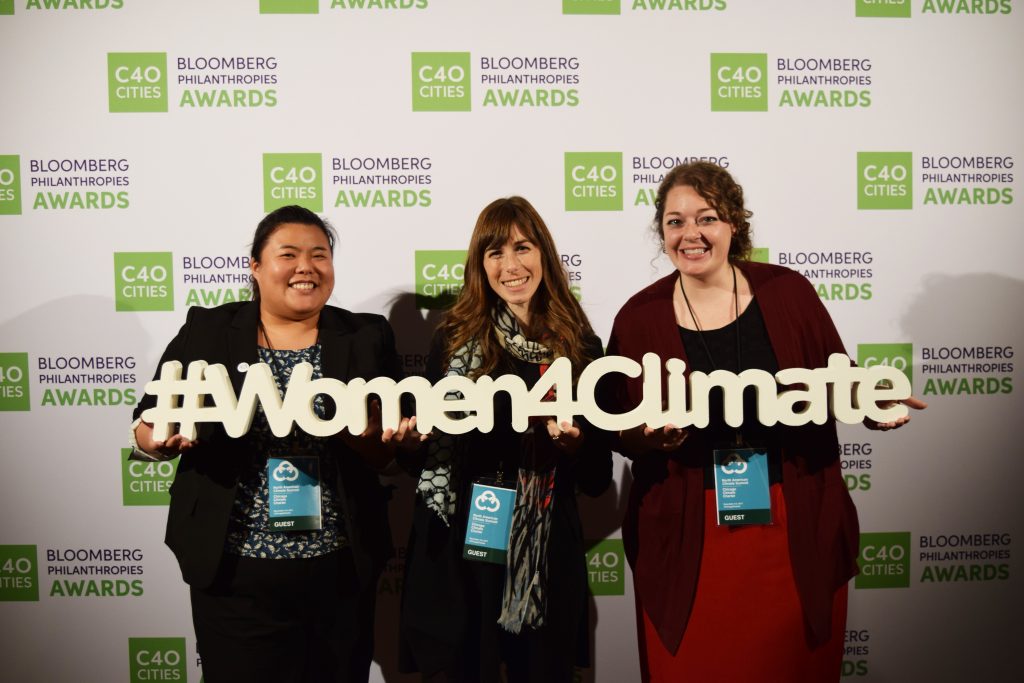Power of Partnerships Q&A with the Natural Resources Defense Council

On June 1st, Bloomberg Philanthropies launched the American Cities Climate Challenge, a new opportunity for 20 ambitious cities to significantly deepen and accelerate their efforts to tackle climate change and promote a sustainable future for their residents. The program specifically focuses on finding solutions with 2020 targets in the buildings and transportation sectors, which together make up the bulk of most cities’ carbon pollution and are areas over which local governments exercise significant authority. Applications are open to the 100 most populous cities until July 18th and Challenge winners will receive a robust technical assistance support package worth $2.5 million per city featuring some of our best-in-class partners like the Natural Resources Defense Council (NRDC).
To highlight some of the technical expertise offered, we’re featuring a Q&A series with some of the Challenge partners. Here the NRDC’s Kimi Narita – who serves as Acting Director for the City Energy Project and will serve as a lead strategist on energy and efficiency for the Challenge – shares her thoughts on why cities should apply.
Q: What’s one reason cities should apply for the Challenge?
A: The American Cities Climate Challenge is a dream project and approach – a way for cities to accelerate progress on the policies and programs that can have the greatest impact for their residents. We are trying to think of all limitations cities face and remove as many of those known barriers as possible by providing staff capacity, technical experts, coaching, peer-to-peer learning, grants for local organizations, modeling support, the list goes on. That’s the dream – when we have the resources to go deep, what can we accomplish together quickly? Cities that can answer that question are the ones who should apply!
Q: What expertise will you be bringing to the Challenge?
A: I’ve been working on energy issues at the city level for nearly six years. I started out in Chicago in 2012 where I helped launch the commercial building challenge program, Retrofit Chicago, and run the external campaign to pass the city’s benchmarking and transparency ordinance. From there I joined the City Energy Project, a joint partnership of NRDC and the Institute for Market Transformation, at the end of 2013. City Energy Project is a national initiative to create healthier and more prosperous American cities by improving the energy efficiency of buildings. My unique areas of expertise are skills-based: outreach, education, stakeholder engagement, advocacy, and political strategy. My original job was to support cities and their staff however they needed and to provide excellent customer service. I’m really proud of the style of engagement I cultivated with our city partners that led to a lot of mutual trust and continued relationships. I’ve worked my way up through the ranks of City Energy Project and have a good sense of how complex multi-city, multi-partner, multi-year projects can be managed. I’m also always looking to grow and learn. Recently I’ve been able to grow outside the energy efficiency realm by working on a core team of partners supporting the creation of the City of Atlanta’s 100% Clean Energy Plan.
Q: What’s the most exciting trend happening in cities today?
A: Cities and residents are seeing the intersectionality of climate change and other critical areas like equity, public health, affordability, resilience, and economic development in unprecedented numbers. Cities know they have to drastically reduce carbon emissions but also improve quality of life to attract and retain residents and businesses. Addressing climate change should also improve public health, make utility bills more affordable, focus attention on groups disproportionately impacted by environmental degradation, and stimulate the economy. It’s a tall order, but I think the Challenge is ready for that challenge. We can help support cities to achieve their climate goals in ways that engage and resonate with their communities and the other issues of top concern.